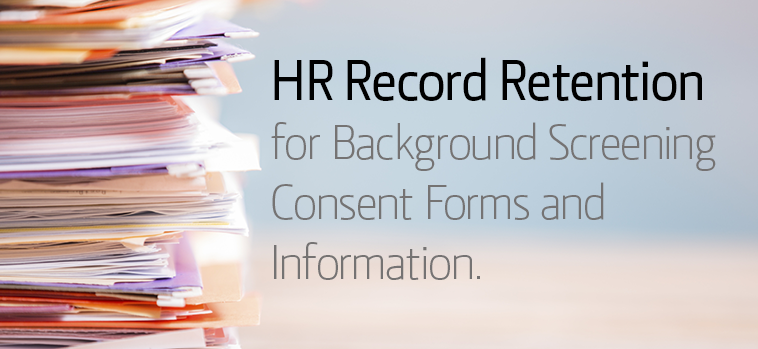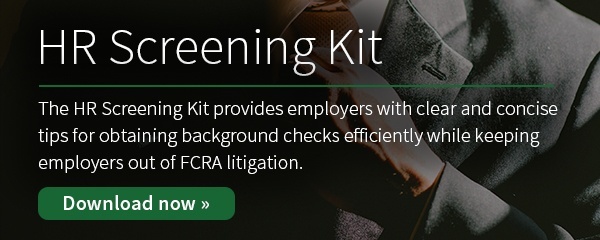
The hiring and termination of employees is a highly regulated procedure. After the termination of an employee, employers must retain all personnel files for a certain period of time or face penalties and violations of government policy. Some states also have recordkeeping requirements. Let's take a closer look at the policies surrounding background check retention.
HR Record Retention
Types of Records
An employee will typically have many of the following types of records with their employer:
- Selection, Hiring and employment records
- Payroll/timesheet records
- Form I-9
- Employment benefits
- Tax Records
- Safety data
- Family Medical Leave data
- Health care continuation
- Polygraph test
- Affirmative action data
- Credit reports
- Drug test records
There are many files, both paper and electronic, that must be kept in a secure location in the case of any employment-related disputes that may arise after the employee's termination. The focus of this post is selection, hiring and employment records. More information on other record keeping can be found in this chart published by the Society for Human Resource Management (SHRM): Federal Record Retention Requirement Chart.
Background Screen Consent Forms & Information
Selection, hiring and employment records include:
- Job ads
- Job applications
- Resumes
- Screening tools & tests (consent forms and background checks)
- Interview notes
- Credit reports
- Drug test records
- Other records related to hire/no hire decisions
- Records pertaining to promotions, demotions and performance
Although credit reports and drug test reports can change over time, employers should keep those records for at least 1 year from the date of the report. In the case of Department of Transportation drug testing, the recommended time is up to 5 years from the date of the test. Otherwise, law dictates that credit report data be shredded after one year.
The Age Discrimination in Employment Act requires 1 year of record retention for companies with 20 or more employees. The Americans with Disabilities Act and the Civil Rights Act of 1964 (Title VII) require 1 year of record retention for companies with 15 or more employees. For federal contractors, the record keeping is dictated at 2 years by various other federal regulations.
When you include state laws and the different variables of employee versus contract workers, the record retention laws can become especially challenging. For the latest in state law record keeping, look at this chart: State Recordkeeping Requirements for Personnel Files
As a best practice, employers should keep all employee records for a minimum of 3 years.
If the terms of the employee's hiring, employment or termination may be disputed, employers would be wise to keep records until resolution of the dispute. At VeriFirst, we provide our clients with a complimentary ComplianceCloud Folder to help centralize and store all their selection, hiring and employment records in one secure location. http://screen.verifirst.com/compliance-cloud-signup
Have a additional questions about record retention and HR compliant background screening?
Download our free guide below.

DOWNLOAD NOW